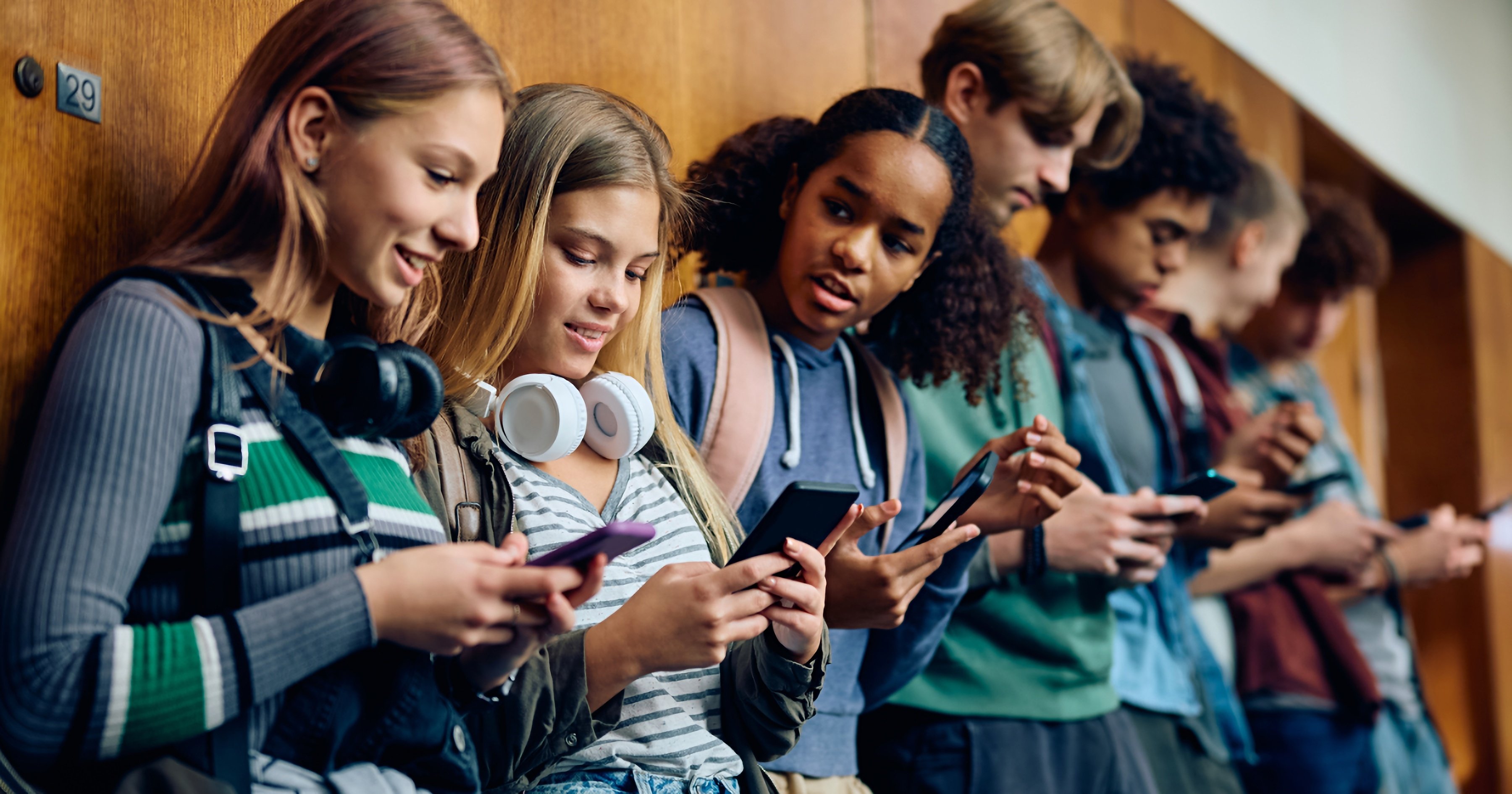
Jun 14, 2024 1:03:31 PM
During my senior year of high school, I learned I was accepted into Purdue University as an education major, and my family began helping me prepare to move away from home. This resulted in an argument between my father and his youngest brother. My uncle wanted me to have a cellphone. My dad did not. After being unable to convince my dad, he purchased one for me and told my dad. My uncle bought this despite my father’s protest, which somehow swayed my father. My father paid my cell phone bill until I married my husband after graduation.
My father feared the cell phone would be a distraction. My uncle argued it would be a tool I could use. Fast forward to 2024. Over two decades later, this same debate runs rampant across the United States, especially in the school setting.
I started teaching during the 2006-2007 school year, and cell phones weren’t much of an issue. The longer I taught, the more they became an issue. Every school I worked in had a cellphone policy. One school had a policy that said if teachers saw what looked like the shape of a cell phone in a pants pocket, they could take it. I told students I didn’t have time to be responsible for phones that were way more expensive than my phone. I told them I would ask them to put it away and would like them to comply. Surprisingly, most students complied, especially when I made good on not taking them when I saw them. On the rare occasion I confiscated a phone, I told the student to put it in my desk drawer and take it when they left. That occurred about three times for students who struggled with self-control.
Even though schools have always had cell phone policies, policymakers have gotten involved and felt the need to ban cell phones in schools.
“Phone-free schools” legislation has been introduced in many states. This has resulted in laws passed in states across America limiting cell phone usage.
My state, Indiana, passed a law that requires “schools must adopt a policy that bans students from using wireless communication devices during class time.”
These “phone-free policies” ignore that schools already have policies and that teachers are the front line of defense for implementing these policies. They already have enough to do, such as ensuring their lessons are rooted in the science of reading. Teachers should not have to be the cell phone police. Across two videos on TikTok (Part I and Part II) I expressed this viewpoint when my twin sons’ school district issued a stricter cell phone policy ahead of this legislation being passed.
The massive downside of overly restrictive policies or outright cell phone bans in schools is that students don’t learn self-control — and they need information about cell phones and how to use them responsibly.
I encourage all parents and teens to watch the short documentary (under 60 minutes) "Like," which describes how social media is set up to keep us on it and how the same receptors in our brain fire when we use our cell phones that go off when we are in love or have an addiction. Information is power. I know the information will not make kids stop using their cell phones at inappropriate times, but it will allow for a starting point to begin a conversation about self-control and self-management.
These conversations should include families since they are paying for and providing the cell phones to students. Organizations like Common Sense Media have provided some guidance for families and schools.
Yes, cell phones can be distracting, but banning them will not provide students with the necessary skills to learn how to be disciplined and manage their own technology. With many schools already incorporating technology such as Chromebooks and iPads - even Artificial Intelligence - it is reasonable for schools to provide some guidance for students even if they must have mandates due to the law.
Shawnta (Shawn-tay) S. Barnes, also known as Educator Barnes, is a married mother of identical twin boys. She navigates education from not only the educator’s perspective but also the parent’s perspective. She has been an educator for nearly two decades. Shawnta works with K-12 schools, universities, & education adjacent organizations through her education consulting business Blazing Brilliance. She is an adjunct college professor, supervises student teachers, Indy Kids Winning Editor-in-Chief, Brave Brothers Books Co-founder, & CEO, and Brazen Education Podcast host. She holds five education licenses: English/language arts 5-12, English to speakers of other languages P-12, library/media P-12, reading P-12, and school administration P-12, and she has held a job in every licensed area. Previously, she has served as a school administrator, English teacher, English learners teacher, literacy coach, and librarian. She won the 2019 Indiana Black Expo Excellence in Education Journalism Award. In 2023, she completed her doctorate in Literacy, Culture, and Language Education with a minor in Learning Sciences. She is an urban gardener in her spare time and writes about her harvest-to-table journey at gardenershicole.com. To learn more about Shawnta, visit educatorbarnes.com.
Few issues in education spark more tension and debate than standardized testing. Are they a tool for equity or a burden on students? A necessary check on school systems or a flawed measure of...
Charter schools are public schools with a purpose. Operating independently from traditional school districts, they're tuition-free, open to all students, and publicly funded—but with more flexibility...
Despite the benefits of a diverse teaching force, prospective teachers of color fall out of our leaky preparation pipeline at every stage: preparation, hiring, induction, and retention. Here’s what...
Ed Post is the flagship website platform of brightbeam, a 501(c3) network of education activists and influencers demanding a better education and a brighter future for every child.
© 2020-2025 brightbeam. All rights reserved.
Leave a Comment